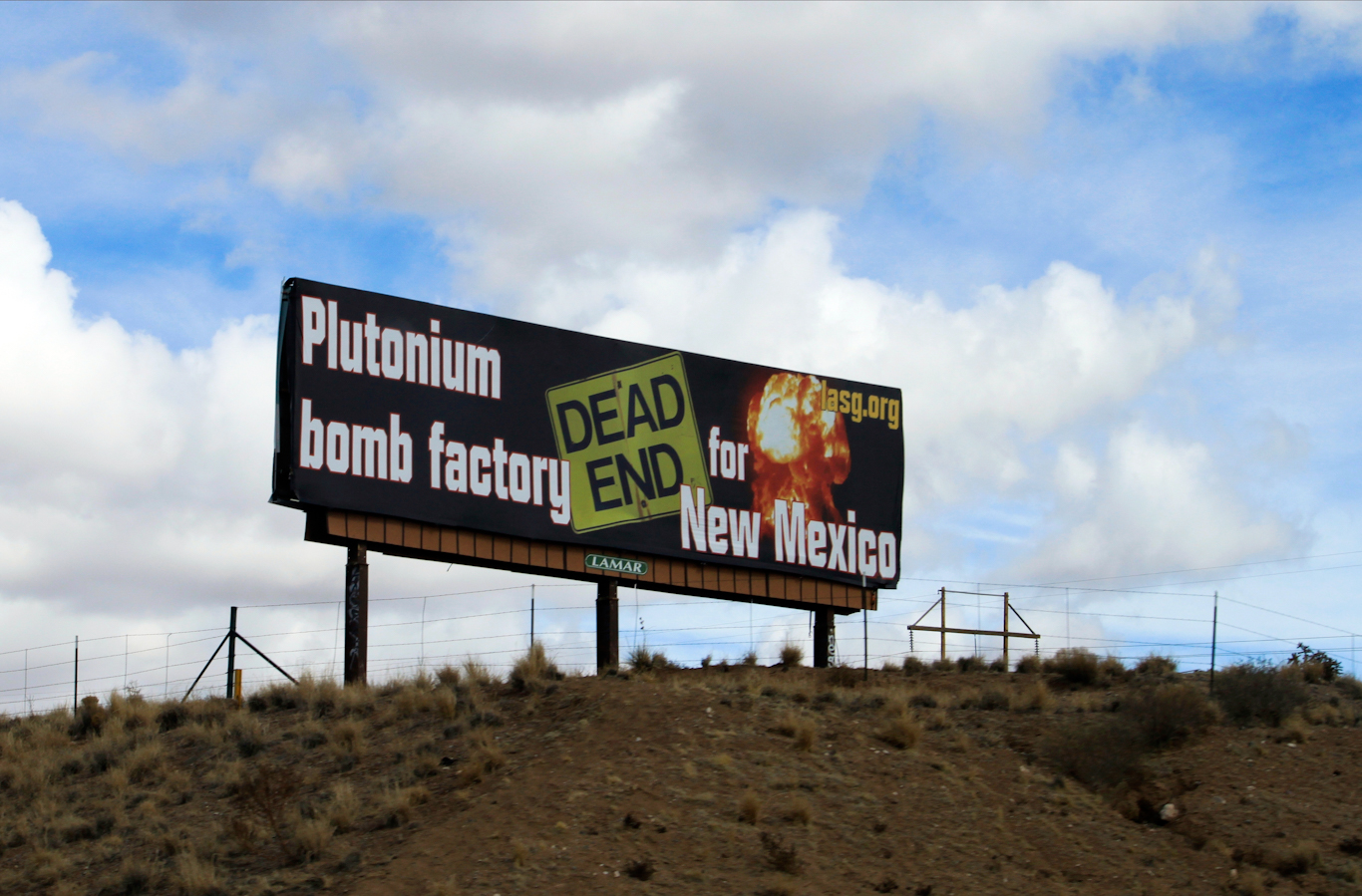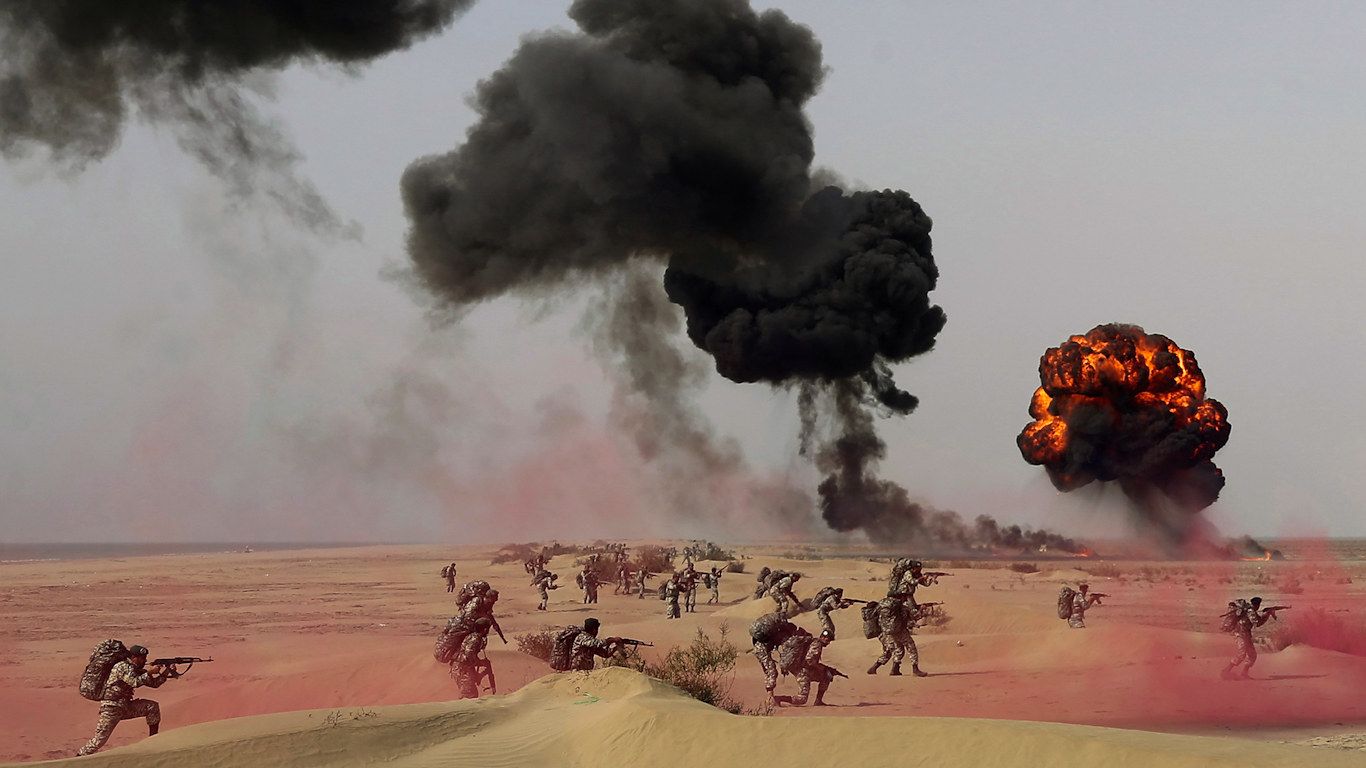WASHINGTON — According to The Telegraph, “new revelations” from an unnamed senior Western intelligence source show “that Iran is trying to conceal vital elements of its nuclear programme from the outside world [and] has no intention of complying with its international obligations under the terms of the nuclear deal.”
Led by Israel and the United States, the narrative of a nuclear-armed Iran wreaking havoc on the Middle East and the world has been unrelenting and co-signed by the broader Western media establishment, which has been complicit in a long-running campaign that goes back to the early 2000s.
Relegated to a secondary news item since the Covid crisis took over, the story is now resurfacing as the Biden administration revisits the Joint Comprehensive Plan of Action (JCPOA), a.k.a. the Iran Nuclear Deal, which was famously shelved by Donald Trump in 2018. Despite promises made during his campaign to restore the treaty, Biden has stopped short of doing so and has conditioned the re-implementation of the agreement on vague “changes from Tehran.”
Manufacturing a “credible” nuclear menace is vital to the interests of the most heavily nuclear-armed country in the world, after all, and the smoke and mirrors used to place Iran in that role serves to justify the Pentagon’s ballooning nuclear budget and projects like the $100 billion nuclear bomb currently in development.
In addition, the political circus surrounding Trump’s scrapping of the nuclear deal and its aftermath has helped to conceal an ongoing redeployment of the U.S.’s nuclear arsenal stationed in Europe since the Cold War, as America and its NATO allies upgrade their nuclear warhead technology.
Moving pieces around
The Congressional Research Service, an independent policy advisory organization known as “Congress’ Think Tank,” recently issued a report in which it disclosed to lawmakers that a third of the United States’ nuclear warheads scattered throughout the old continent have been redeployed from their warehouses in Europe and Turkey.
According to the Bulletin of the Atomic Scientists published in January, the redeployments were carried out because of a “reduction of operational storage capacity” at several bases. The Bulletin also reported that, per Sputnik, approximately 130 B61 thermonuclear bombs are now being “stored at bases in the U.S. and kept ready for operations in Asia or other locations outside Europe.”

Continued violations of the Treaty on the Non-Proliferation of Nuclear Weapons by Atlanticist powers since its signing in 1968 have only garnered skepticism over the stated motives of the redeployment. Russian government officials believe the movement of the nuclear weapons probably has more to do with their modernization, as opposed to any efforts to actually reduce the number of atomic bombs in the region, a belief buttressed by the UK’s recent increase of its own nuclear stockpile.
The removal and redeployment is likely due to the development of smaller nuclear weapon technology — such as the B61-12, tested last year in the Nevada desert, which can carry in the bay of an F-35 jet a payload three times larger than the bombs dropped on Hiroshima and Nagasaki. Russian Armed Forces Lt. Gen. Evgeny Buzhinsky, interviewed by local Russian media, does not believe a reduction in the American nuclear arsenal is actually taking place and, moreover, U.S. officials have not announced any changes to their nuclear arsenal in Europe.
Twisted logic
A topic that seemed to be lost in the dustbin of history is being revived by the last remaining members of the generation that grew up in the midst of Cold War hysteria and foisted upon a new generation, which is expected to adopt the same fears and suspicions that fueled the exponential growth of the military industrial complex and established America’s war economy as the world’s preeminent economic paradigm.
Vinton Cerf and Martin Hellman, two individuals who’ve had a role in keeping the specter of nuclear annihilation alive in the 21st century, recently published a dual opinion piece detailing the reasons they believe that the “risk of a nuclear war is unacceptably high” and why “risk reduction measures are urgently needed” from a qualitative and quantitative approach respectively.
Hellman, a cryptographer involved with nuclear deterrence in the waning years of the Cold War with the Reagan administration, and Cerf — one of the developers of a military communication protocol designed to withstand a nuclear attack, the precursor to the internet called ARPAnet — both harbor alarmist viewpoints that were so common during the post-war years.
Banal comparisons between marriage and nuclear war, such as Hellman employs as a thesis for his book “A New Map for Relationships,” are coupled with hyperbolic statements like “a child born today may well have less-than-even odds of living out his or her natural life without experiencing the destruction of civilization in a nuclear war,” to propagate the idea that the threat of a nuclear conflagration is as terrifying as it is a fact of life.
Cerf and Hellman are among several scientists and deterrence policy experts participating in a series of workshops organized by the National Academies of Sciences, Engineering, and Medicine (NASEM), which began in February and is scheduled to have its fourth meeting in April. The ad hoc committee project, titled “Risk Analysis Methods for Nuclear War and Nuclear Terrorism,” will issue a report at the project’s conclusion to deliver assessments informing the development of a new nuclear security strategy for the United States.
The real enemy
In Hellman’s mathematical calculations, the probability of nuclear war is extrapolated from what “we would expect on the order of ten major crises comparable to Cuba 1962; 100 lesser crises comparable to the 1995-1996 Taiwan Straits Crisis, the 2008 Russo-Georgian War, or the ongoing conflict in Ukraine that started in 2014.” Cerf’s quantitative analysis likewise focuses on the Cuban missile crisis, but opts for the 1999 war in Kosovo and a false incoming ballistic missile alert in Hawaii three years ago as examples.
While taking different routes, both arrive at the same basic conclusion that the only way to avoid a nuclear holocaust is to raise the level of perceived risk so high that it, in turn, spurs a concerted effort to reduce said risks.
Given the languishing Cold War narratives decades after that war’s denouement, the creation of a new nuclear threat in Iran and North Korea becomes vital to the reestablishment of America’s teetering war economy, which has spent the last few decades since Gorbachev dissolved the Soviet Union looking for ways to quash its real enemy – peace.
Feature photo | Iranian troops participate in a military drill, the latest in a series of exercises amid escalating tensions over Washington’s so-called maximum pressure campaign against Tehran. Photo | Iranian Army via AP
Raul Diego is a MintPress News Staff Writer, independent photojournalist, researcher, writer and documentary filmmaker.


